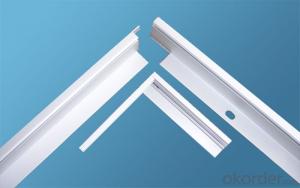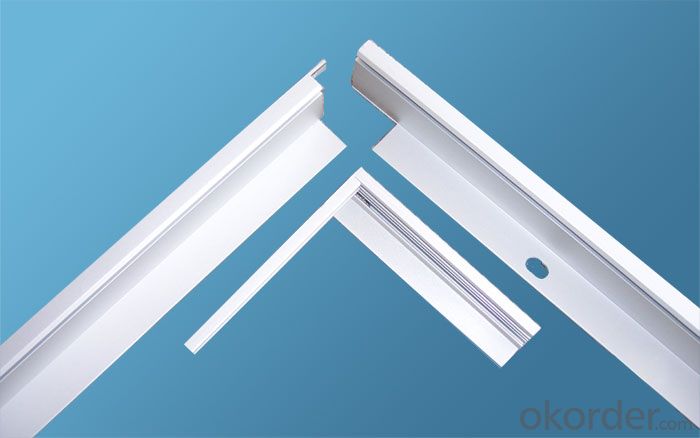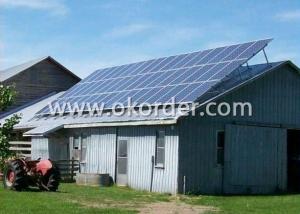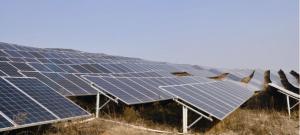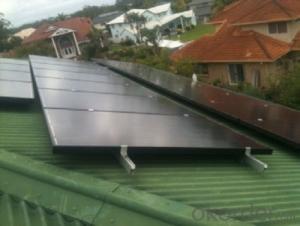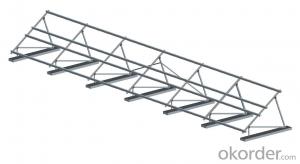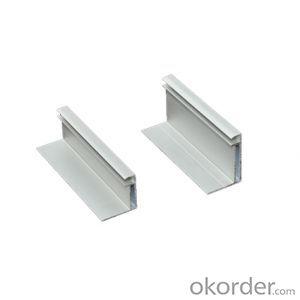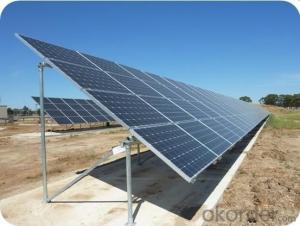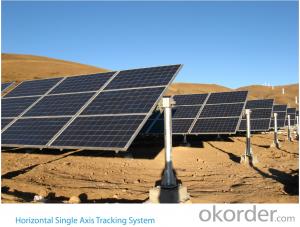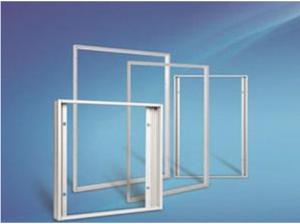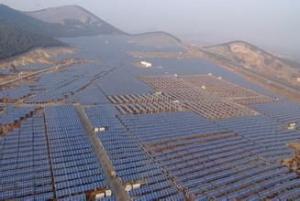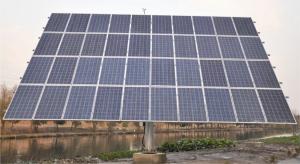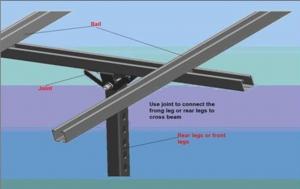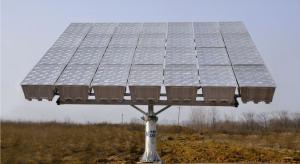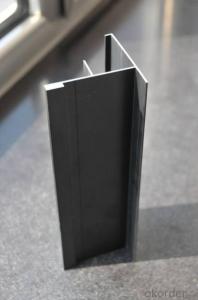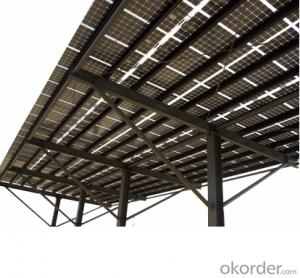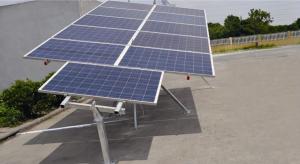K2 Solar Mounting Systems for Solar Modules with Aluminum Frames
- Loading Port:
- China Main Port
- Payment Terms:
- TT OR LC
- Min Order Qty:
- -
- Supply Capability:
- -
OKorder Service Pledge
OKorder Financial Service
You Might Also Like
Specification
1.Material: Aluminum Alloy 6063, 6063A, 6065,6068,6082 etc
2.Temper available: T4, T5, T5-2, T6, etc.
3.Surface available: Mill finish, Anodized, Powder Coating, Wooden transfering, electrophoresis, heat insulation, PVDF, and deep processing
4.Standard:GB 5237-2008
5.Length: 1m-7m
6.Normal Anodizing thickness: 12-30micro
7.Normal powder coating thickness: 60-100 micro
8.Tensile strength: ≥ 16 mpa
9.Yield strength: ≥ 110 mpa
10.Extensibility: ≥ 8%
11.Hardness(HW): ≥ 8
12.Certificate: ISO9001, ISO14001
Aluminum alloy guides
Alloy | Si | Fe | Cu | Mn | Mg | Cr | Zn | Ti | Other | Remain |
6005 | 0.6-0.9 | 0.35 | 0.1 | 0.1 | 0.4-0.6 | 0.1 | 0.1 |
| 0.15 | aluminum |
6060 | 0.3-0.6 | 0.1-0.3 | 0.1 | 0.1 | 0.35-0.6 | 0.05 | 0.15 |
| 0.15 | aluminum |
6061 | 0.4-0.8 | 0.7 | 0.15-0.4 | 0.15 | 0.8-1.2 | 0.04-0.35 | 0.25 |
| 0.15 | aluminum |
6063 | 0.2-0.6 | 0.35 | 0.1 | 0.1 | 0.45-0.9 | 0.1 | 0.1 |
| 0.15 | aluminum |
Advantages of Products
1.Perfect Quality Management and Control System
With a strong quality management and control team, has passed the ISO 9001 and TÜV certification(parts of frames).
2.Excellent R & D Strength
With the ability to design, has researched and developed new frame of up to 6000 varieties.
3.Accuracy
The Mould excellent accuracy up to 0.02mm.
- Q: What materials are used in a solar mounting system?
- The materials commonly used in a solar mounting system include aluminum or steel for structural components, stainless steel for fasteners, and various types of polymers for seals and gaskets.
- Q: Can a solar mounting system be used with solar-powered electric vehicle charging stations?
- Yes, a solar mounting system can indeed be used with solar-powered electric vehicle charging stations. The solar mounting system provides a secure and efficient way to install solar panels, which can generate renewable energy to power the charging stations for electric vehicles. This integration allows for an eco-friendly and sustainable solution to powering electric vehicles.
- Q: Are there any maintenance requirements for solar mounting systems?
- Yes, solar mounting systems require regular maintenance to ensure optimal performance. This includes inspecting and cleaning the panels, checking for any damage or loose connections, and ensuring proper alignment and tension of the mounting components. Additionally, regular monitoring of the system's performance and addressing any issues promptly is essential for long-term efficiency and durability.
- Q: How is a solar mounting system installed?
- A solar mounting system is typically installed by first securing the mounting structures to the roof or ground using appropriate fasteners. Then, the solar panels are attached to the mounting structures using clamps or brackets. The system is connected to the electrical wiring of the property, allowing the generated solar power to be used or fed back into the grid. Finally, the system is tested to ensure proper functionality and safety measures are in place.
- Q: What materials are commonly used in solar mounting systems?
- Common materials used in solar mounting systems include aluminum, steel, and stainless steel. These materials are chosen for their durability, strength, and resistance to corrosion, ensuring that the mounting system can withstand various weather conditions and last for a long time. Additionally, some mounting systems may also incorporate plastics or composite materials to provide additional support and flexibility.
- Q: Can a solar mounting system be installed on a rooftop with a slate roof?
- Yes, a solar mounting system can be installed on a rooftop with a slate roof. However, it requires specialized mounting techniques to ensure the integrity and protection of the slate roof. The installation process involves careful consideration of the roof's structure and the use of non-penetrating or minimally-invasive mounting methods to prevent damage to the slate tiles.
- Q: Can a solar mounting system be used on mountainsides?
- Yes, solar mounting systems can be used on mountainsides.
- Q: Are there any specific requirements for installing a solar mounting system on a shingle roof?
- Yes, there are specific requirements for installing a solar mounting system on a shingle roof. The roof should be structurally sound and capable of supporting the added weight of the solar panels. It is important to select a mounting system that is compatible with shingle roofs and follow manufacturer guidelines for installation. Additionally, proper flashing and waterproofing measures should be taken to ensure the integrity of the roof.
- Q: Can a solar mounting system be installed on any type of roof?
- Yes, a solar mounting system can be installed on most types of roofs, including flat, sloped, metal, tile, and asphalt roofs. However, it's important to consider the specific characteristics and structural integrity of the roof to ensure proper installation and to maximize the efficiency and longevity of the solar system.
- Q: Can a solar mounting system be used in areas with limited sunlight?
- Yes, a solar mounting system can still be used in areas with limited sunlight. While the efficiency and output of the solar panels may be reduced in such areas, they can still generate electricity to some extent. Additionally, advancements in solar technology have made it possible to capture and utilize even small amounts of sunlight, making solar mounting systems viable in areas with limited sunlight.
Send your message to us
K2 Solar Mounting Systems for Solar Modules with Aluminum Frames
- Loading Port:
- China Main Port
- Payment Terms:
- TT OR LC
- Min Order Qty:
- -
- Supply Capability:
- -
OKorder Service Pledge
OKorder Financial Service
Similar products
Hot products
Hot Searches
Related keywords
